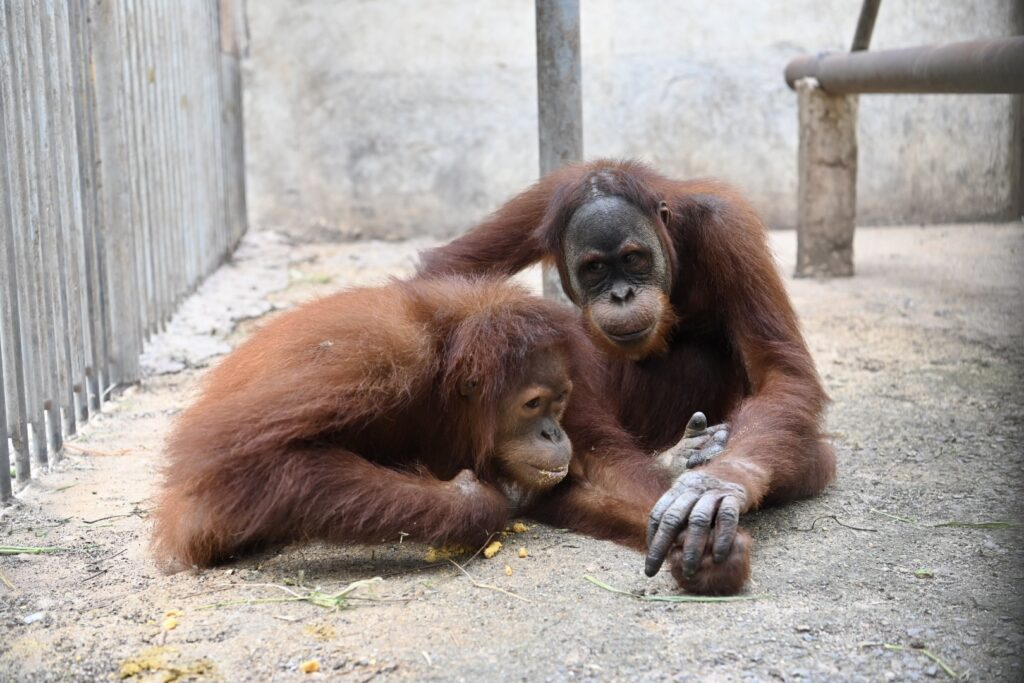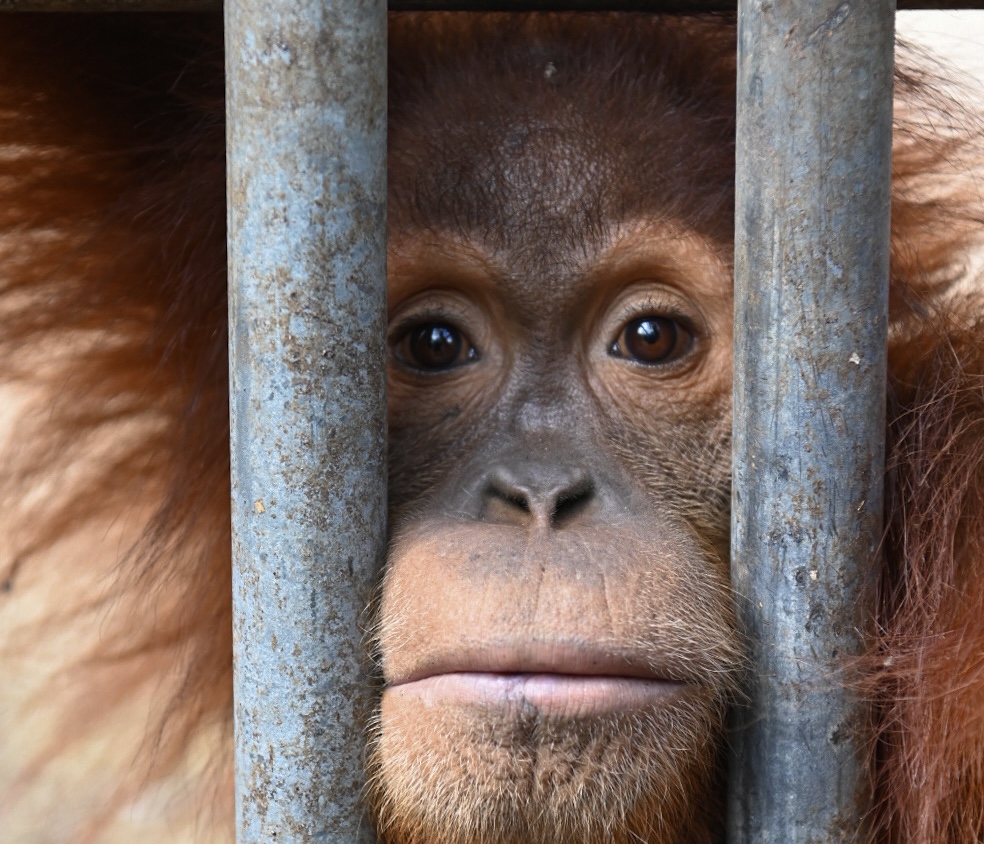The three young orangutans, the last confiscated apes under the care of the DNP, were repatriated to Indonesia on Thursday safe and sound and now are under rehabilitation at a wildlife rehabilitation centre in Jambi province
The Department of National Parks, Wildlife and Plant Conservation Department (DNP), which arranged the repatriation with its counterpart Indonesian officials, has updated the mission, confirming that the three kids_7-year-old Nobita and Shizuka, and 5-year-old Brian_ have arrived at the wildlife centre in Jambi province on the Sumatra island safe and sound and now under the centre’s care.
They are in good health. They can eat and drink and are checking around the new environment, the DNP reported. They will normally have to be under quarantine and the centre’s care for some time before being released to the wild once ready. Nobody at this point has confirmed when or whether that would ever happen.
The repatriation ceremony was held on Thursday morning before a plane sent them to Indonesia in the evening. Deputy Prime Minister and the Minister of Natural Resources and Environment Pol. Gen. Patcharawat Wongsuwan presided over the ceremony along with H.E. Mr. Rachmat Budiman, the Ambassador of the Republic of Indonesia to Thailand. Mr. Budiman told AP that he was happy that the young orangutans would be back in their natural habitat but sad for the Thai caretakers who had bonded with the animals over several years.
Early this year, Mr. Budiman met with Mr. Athapol Charoenchansa, the DNP’s chief, to discuss the matter. The department’s committee dealing with wildlife carcasses and products then held a meeting to consider the matter and resolved to repatriate the three orangutans to their place of origin as their legal case was over.
This is in line with the 8th and 9th Joint Commission meetings between the two countries held in 2018 to follow up on progress on their commitment to combating illegal wildlife trade and operations under CITES international obligations (The Convention on International Trade in Endangered Species of Wild Fauna and Flora).
The event helps promote their collaboration in the area while showing Thailand’s commitment, said the DNP, adding at the same time it also helps mark a good relationship between the two countries on the occasion of the 73rd anniversary of Thailand-Indonesia relations.



l Credit: DNP
The trace of origin
During their stay at the 3rd Wildlife Rescue Center (Prathap Chang) under Paro 3 in Ratchaburi Province, veterinarians examined their health and conducted blood checks and learned that they belonged to the Sumatran species (Pongo abelii).
According to the International Union for Conservation of Nature (IUCN), which assesses the status of species worldwide, there are three species of orangutans inhabiting the forests on the Borneo and Sumatra islands of Indonesia and Malaysia.
Aside from the very rare Tapanuli orangutans inhabiting the forests on the same island, the Sumatran species is considered endemic to the island, with wild populations persisting mainly in remaining lowland forests in the provinces of Aceh and North Sumatra, according to the organisation. It’s in recent years that some animals have been reintroduced in the far North and the South of the island in Jambi province.
The previous estimates suggest that only around 6,600 wild orangutans remained in just nine fragmented habitats; from the central regions of Aceh, south to the Batang Toru River in North Sumatra, according to the IUCN. More recent surveys (2017) indicate the total population to be larger than 6,600 (over 13,000 or so due to improved surveys and coverage), but the overall trend in the orangutan numbers and habitat area remains decidedly downwards, the IUCN notes.
The organisation’s latest assessment (2017) for its Red List lists Sumatran orangutans as “critically endangered” due to their decreasing number and shrinking habitats. The organisation cites high levels of habitat conversion and fragmentation as well as illegal killing as the main causes of a population reduction of the species in recent years. The expansion of palm oil plantations is cited by several conservation organisations as being among those causes.
CITES at the same time lists the species in its Appendix I, meaning trade in the species is banned internationally except for research.
Over the years, a number of animals have been smuggled across the border and several cases have been intercepted by Thai authorities, however. According to the DNP, Thailand has intercepted and repatriated 71 orangutans from the illicit wildlife trade since 2006.
Shizuka and Nobita, who were only months old during the confiscation, had their story go viral and became a reminder for concerned authorities that such an illicit trade remained at large over the past decade as they were found being packed in a small plastic basket behind the back seat of a cab just in the downtown of Bangkok, hugging each other and screaming with a very scare.

Indie • in-depth online news agency
to “bridge the gap” and “connect the dots” with critical and constructive minds on development and environmental policies in Thailand and the Mekong region; to deliver meaningful messages and create the big picture critical to public understanding and decision-making, thus truly being the public’s critical voice


